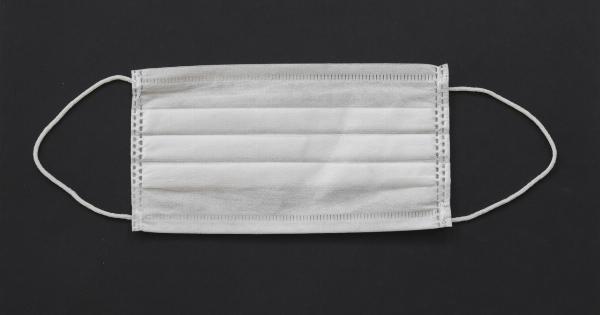A sore throat is a common ailment that most people experience at some point in their lives. It can be caused by various factors such as viral infections, bacterial infections, allergies, and environmental irritants.
Having a sore throat can be uncomfortable and painful, making it difficult to swallow, speak, or even breathe. Fortunately, there are several effective remedies and treatments available to help alleviate the symptoms and provide relief. In this ultimate guide, we will explore the best strategies recommended by experts to cure a sore throat.
1. Stay Hydrated
One of the first and most important steps in curing a sore throat is to stay hydrated. When you have a sore throat, your throat becomes inflamed and irritated. Drinking plenty of fluids helps to soothe the throat and decrease discomfort.
Additionally, staying hydrated helps thin the mucus secretions, making it easier to clear the throat.
2. Gargle with Warm Salt Water
Gargling with warm salt water is a traditional remedy that has been used for centuries to relieve sore throat symptoms. It works by reducing inflammation and loosening mucus in the throat.
To make the solution, mix half a teaspoon of salt in a glass of warm water. Gargle with this mixture several times a day, especially before bed, for maximum relief.
3. Use Honey and Warm Water
Honey has natural antibacterial and antiviral properties that can help soothe a sore throat. Mix a tablespoon of honey in a cup of warm water and drink it slowly.
You can also add a squeeze of lemon juice or a dash of cinnamon for added flavor and therapeutic benefits. Just make sure not to give honey to children under one year of age due to the risk of botulism.
4. Try Over-the-Counter Pain Relievers
If your sore throat is causing severe pain and discomfort, over-the-counter pain relievers such as acetaminophen or ibuprofen can help provide temporary relief. These medications can also help reduce inflammation in the throat.
However, it’s essential to follow the recommended dosages and consult a healthcare professional if you have any underlying medical conditions or are taking other medications.
5. Use Lozenges or Sore Throat Sprays
Sucking on lozenges or using sore throat sprays can provide targeted relief for a sore throat. Lozenges stimulate saliva production, which helps soothe and moisturize the throat.
Look for lozenges that contain ingredients like menthol or eucalyptus for an added cooling effect. Sore throat sprays usually contain numbing agents like benzocaine, which temporarily numbs the throat, providing relief.
6. Keep the Air Moist
Dry air can worsen your sore throat symptoms and prolong the healing process. Using a humidifier or vaporizer adds moisture to the air, preventing your throat from drying out. Ensure the humidifier is kept clean to avoid the growth of mold or bacteria.
If you don’t have a humidifier, you can also place a bowl of water near a heat source to help increase humidity in the room.
7. Avoid Irritants
To speed up the healing process, it’s crucial to avoid irritants that can further aggravate the throat. This includes smoking, inhaling secondhand smoke, exposure to chemicals or pollutants, and consuming spicy or acidic foods and beverages.
These irritants can further inflame the throat and hinder the healing process.
8. Rest Your Voice
If your sore throat is accompanied by hoarseness or loss of voice, it’s essential to rest your voice to prevent further strain on your vocal cords. Avoid excessive speaking or shouting and limit the use of your voice as much as possible.
Whispering should also be avoided as it can strain the vocal cords even more. Resting your voice allows your vocal cords to heal more effectively.
9. Try Steam Inhalation
Steam inhalation can help relieve sore throat symptoms by moisturizing the throat and nasal passages. Fill a bowl with hot water and place a towel over your head to create a tent-like structure.
Lean over the bowl and inhale the steam for about 10-15 minutes. Be cautious not to burn yourself with the hot water. Adding a few drops of essential oils such as eucalyptus or peppermint can provide added benefits.
10. When to Seek Medical Assistance
While most sore throats can be treated at home with home remedies, there are instances when medical assistance may be required. You should seek medical attention if:.
- Your sore throat persists for more than a week
- You experience difficulty breathing or swallowing
- You have a high fever or severe pain
- You develop a rash, joint pain, or swollen lymph nodes
- Your sore throat is accompanied by other severe symptoms
It’s important to consult a healthcare professional to diagnose and treat any underlying conditions that may be causing your persistent sore throat.





























